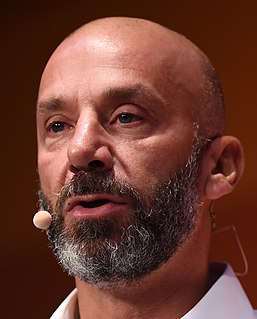A Quote by Lou Gerstner
Until I came to IBM, I probably would have told you that culture was just one among several important elements in any organization's makeup and success - along with vision, strategy, marketing, financials, and the like... I came to see, in my time at IBM, that culture isn't just one aspect of the game, it is the game. In the end, an organization is nothing more than the collective capacity of its people to create value.
Related Quotes
Confidence is not just in people's heads; it comes from the culture of the organization. It's easier to expect success when working in an organization that has a culture of accountability, collaboration, and initiative. Without this, it's easier - and more self-protective - to assume failure so the person is not disappointed and instead pleasantly surprised.
The shaman is a person who is able to transcend the dimensional confines of cultural existence. They know more than the people they serve. The people they serve are like children within the game of culture. Only the shaman knows that culture is a game. Everyone else takes it seriously. That's how he can do his magic.
It's important in any organization that if visions have any reality at all, it's because the organization believes that the vision is right and that they share in it. Otherwise, it becomes the good idea of one person, and that even more importantly contributes to the sense that it will not survive the departure of that individual.































